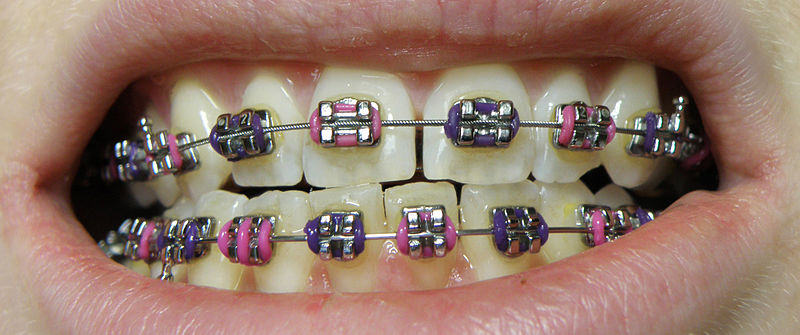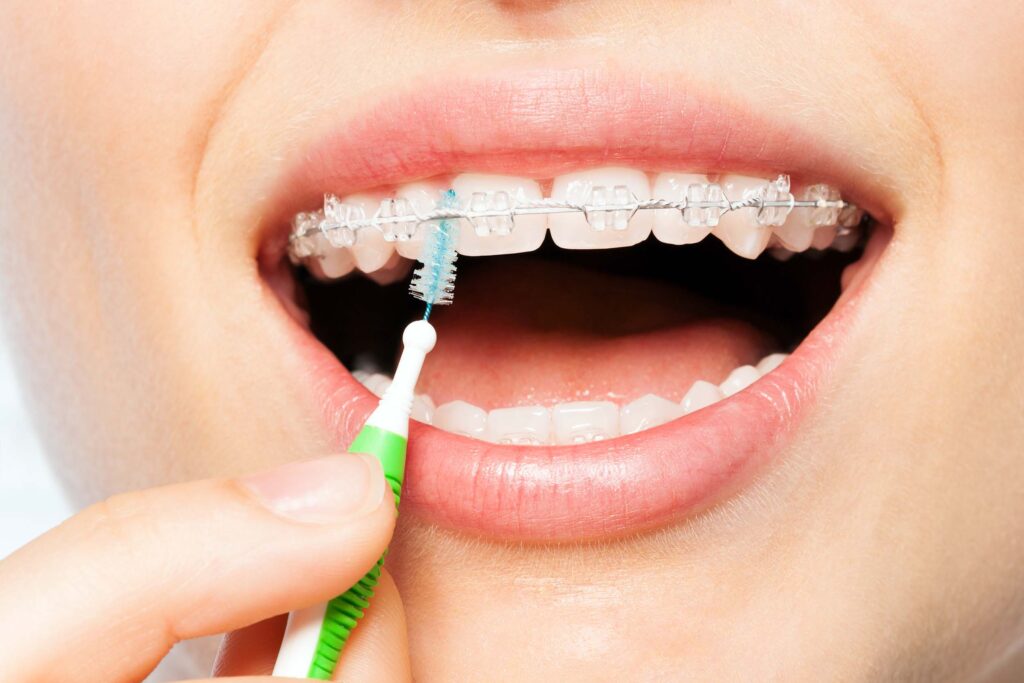How Cumming Orthodontics Can Change Your Smile with Invisalign and Braces
How Cumming Orthodontics Can Change Your Smile with Invisalign and Braces
Blog Article
Exploring the Importance of Orthodontics in Improving Oral Health
In the realm of dental health, orthodontics plays a critical role in not just boosting appearances but likewise in alleviating overall well-being. The value of orthodontic interventions extends past simple aesthetic enhancements, diving into the ins and outs of dental health upkeep and its far-reaching effects. By addressing imbalances and malocclusions, orthodontic treatments contribute to a spectrum of benefits that exceed the confines of a straighter smile. As we decipher the layers of orthodontics' impact on oral wellness, an extensive story unravels, losing light on the interconnectedness of dental harmony with wider elements of health and wellness and confidence.
Historical Evolution of Orthodontics
Throughout the centuries, the area of orthodontics has undertaken a remarkable historical advancement, shaped by innovations in dental scientific research and changing societal perspectives towards oral looks. The beginnings of orthodontics can be traced back to ancient worlds like the Egyptians and the Greeks, who used various methods to correct teeth. However, it was only in the 18th century that orthodontics started to emerge as a distinctive dental specialty. French dental professional Pierre Fauchard is usually credited as the "daddy of modern orthodontics" for his ingenious techniques in the 1700s.
The 20th and 19th centuries saw considerable improvements in orthodontic therapies, with the introduction of dental braces, retainers, and other home appliances to correct malocclusions. The establishment of orthodontic societies and the standardization of training further boosted the area's integrity and performance. In recent decades, technical innovations like unnoticeable aligners and digital imaging have actually transformed orthodontic practices, making therapies much more comfortable and discreet for people. In general, the historical evolution of orthodontics shows a constant mission for enhancing oral health and enhancing dental looks.
Effect of Orthodontic Treatments on Oral Hygiene
Orthodontic treatments play a critical duty in preserving optimum dental health by attending to imbalances and bite problems that can contribute to dental illness. Misaligned teeth can create holes that are difficult to get to with normal cleaning and flossing, causing plaque accumulation, dental caries, and gum illness. By straightening out the teeth via orthodontic interventions such as braces or clear aligners, individuals can improve their dental hygiene methods and reduce the threat of developing these oral wellness concerns.
Additionally, orthodontic treatments not just enhance the aesthetic appearance of the smile but also make it easier to clean the teeth properly. When the teeth are effectively straightened, it comes to be simpler to clean and floss completely, lowering the opportunities of food fragments getting trapped between the teeth and creating microbial growth.
Emotional Advantages of Orthodontic Procedures
The change accomplished via orthodontic procedures extends beyond physical alignment to positively impact people' confidence and general wellness. Orthodontic therapies not just improve the aesthetic appeals of one's smile but also play a crucial duty in improving emotional health. Misaligned teeth or attack issues can result in insecurities and self-consciousness, affecting social communications and mental health and wellness. By remedying these oral imperfections, orthodontic procedures encourage people to really feel even more positive in their appearance, bring about improved self-esteem and a positive self-image.
Furthermore, the emotional advantages of orthodontic treatments include enhanced communication abilities and overall quality of life. When individuals really feel much more positive regarding their smiles, they are more probable to engage in social activities, speak out in public settings, and share themselves openly. This newfound confidence can have a profound influence on different elements of life, including personal partnerships, occupation opportunities, and psychological well-being. Eventually, orthodontic procedures not just straighten teeth but likewise straighten individuals towards a more confident and positive future.
Avoidance of Oral Wellness Issues With Orthodontics

Orthodontic treatments play a critical role in stopping different oral wellness difficulties by resolving concerns our website such as misaligned teeth, attack problems, continue reading this and overcrowding. One of the primary methods which orthodontics helps in stopping oral health and wellness concerns is by lining up the teeth correctly. Misaligned teeth can cause trouble in cleansing, which boosts the threat of gum tissue disease and dental cavity. By straightening out the teeth through orthodontic therapies like dental braces or clear aligners, individuals can maintain much better dental health, reducing the chance of such difficulties - cumming aligners.

Orthodontics as a Gateway to Enhanced Self-esteem
Enhancing one's smile through corrective oral treatments can dramatically enhance self-confidence and general self-esteem. Orthodontic therapies not only line up teeth for much better capability yet also play a critical role in changing a person's self-image. Misaligned teeth or malocclusions can frequently cause sensations of where does the word dentist come from self-consciousness and embarrassment, influencing how individuals perceive themselves and interact with others - orthodontics. By resolving these dental problems with orthodontic interventions such as braces or clear aligners, individuals can attain a straighter, more aesthetically pleasing smile, eventually improving their self-confidence.
Study has revealed a clear connection between dental appearances and self-worth, with numerous people reporting increased self-confidence and a much more favorable self-perception adhering to orthodontic treatment. Orthodontics not only contributes to dental health but likewise serves as a gateway to enhanced self-confidence and general wellness.
Final Thought
To conclude, orthodontics plays a vital duty in improving dental health and wellness by addressing historic advancement, improving dental health, supplying emotional benefits, stopping difficulties, and increasing self-esteem. These elements highlight the significance of orthodontic therapies in promoting general oral health and wellness and wellness. It is clear that orthodontics is not just regarding correcting teeth yet likewise concerning making sure a healthy and balanced and confident smile for people.
The relevance of orthodontic treatments expands past mere aesthetic enhancements, diving into the details of oral health and wellness upkeep and its far-reaching effects.Orthodontic therapies play a critical function in preserving optimal oral health by attending to imbalances and bite problems that can add to oral health and wellness problems. By correcting the alignment of the teeth through orthodontic treatments such as braces or clear aligners, individuals can improve their oral health practices and lower the risk of establishing these oral health and wellness issues.
Orthodontic interventions play a critical function in preventing different oral health difficulties by addressing concerns such as misaligned teeth, bite issues, and congestion. These facets highlight the importance of orthodontic treatments in advertising total oral health and health.
Report this page